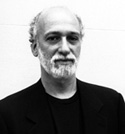 Joshua Brown is executive director of the American Social History Project and professor of history at the Graduate Center, CUNY. He is a noted scholar of visual culture in U.S. history, and author of Beyond the Lines: Pictorial Reporting, Everyday Life, and the Crisis of Gilded Age America (2002), and co-author of Forever Free: The Story of Emancipation and Reconstruction (2005). He is currently working on a study of Civil War visual culture for which he received a 2010 Guggenheim Fellowship. Brown will lecture on the illustrated press and participate throughout the institute.
Joshua Brown is executive director of the American Social History Project and professor of history at the Graduate Center, CUNY. He is a noted scholar of visual culture in U.S. history, and author of Beyond the Lines: Pictorial Reporting, Everyday Life, and the Crisis of Gilded Age America (2002), and co-author of Forever Free: The Story of Emancipation and Reconstruction (2005). He is currently working on a study of Civil War visual culture for which he received a 2010 Guggenheim Fellowship. Brown will lecture on the illustrated press and participate throughout the institute.
 Sarah Burns is the Ruth N. Halls Professor of the History of Art (emerita) at Indiana University. She is a leading scholar of nineteenth-century American art and popular culture, and author of award-winning studies, including Painting the Dark Side: Art and the Gothic Imagination in Nineteenth-Century America (2004) and Inventing the Modern Artist: Art and Culture in Gilded Age America (1996), and is co-editor of American Art to 1900: A Documentary History (2009). Burns will be the lead art historian throughout the institute.
Sarah Burns is the Ruth N. Halls Professor of the History of Art (emerita) at Indiana University. She is a leading scholar of nineteenth-century American art and popular culture, and author of award-winning studies, including Painting the Dark Side: Art and the Gothic Imagination in Nineteenth-Century America (2004) and Inventing the Modern Artist: Art and Culture in Gilded Age America (1996), and is co-editor of American Art to 1900: A Documentary History (2009). Burns will be the lead art historian throughout the institute.
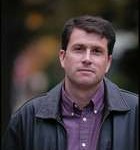 Gregory Downs is associate professor of history at the University of California, Davis. Downs specializes in Civil War and Reconstruction history and is author of Declarations of Dependence: The Civil War, Reconstruction, and the Transformation of American Popular Politics (2011), After Appomattox: Military Occupation and the Ends of War (2015), and co-editor of The World the Civil War Made (2015). Recipient of a 2011 NEH Research Fellowship and 2013 ACLS Digital Innovation Fellowship, Downs will be the institute’s primary faculty resource on the Civil War and Reconstruction.
Gregory Downs is associate professor of history at the University of California, Davis. Downs specializes in Civil War and Reconstruction history and is author of Declarations of Dependence: The Civil War, Reconstruction, and the Transformation of American Popular Politics (2011), After Appomattox: Military Occupation and the Ends of War (2015), and co-editor of The World the Civil War Made (2015). Recipient of a 2011 NEH Research Fellowship and 2013 ACLS Digital Innovation Fellowship, Downs will be the institute’s primary faculty resource on the Civil War and Reconstruction.
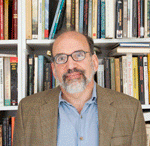 David Jaffee is professor and director of new media at the Bard Graduate Center. He is a leading scholar of U.S. social history, material culture, and a noted writer on and practitioner of teaching with technology. He is author of People of the Wachusett: Greater New England in History and Memory, 1630-1860 (1999) and A New Nation of Goods: The Material Culture of Early America (2010), and has designed and led digital history teaching initiatives sponsored by NEH and the Atlantic Philanthropies’ Visible Knowledge Project. Jaffee will be the institute’s lead historian, focusing on teaching with visual evidence.
David Jaffee is professor and director of new media at the Bard Graduate Center. He is a leading scholar of U.S. social history, material culture, and a noted writer on and practitioner of teaching with technology. He is author of People of the Wachusett: Greater New England in History and Memory, 1630-1860 (1999) and A New Nation of Goods: The Material Culture of Early America (2010), and has designed and led digital history teaching initiatives sponsored by NEH and the Atlantic Philanthropies’ Visible Knowledge Project. Jaffee will be the institute’s lead historian, focusing on teaching with visual evidence.
 Lynne Zacek Bassett is an award-winning independent scholar specializing in historic costume and textiles. She was curator of textiles and fine arts at Old Sturbridge Village, and subsequently has directed exhibition and publishing projects for the Wadsworth Atheneum Museum of Art, The Mark Twain House and Museum, Historic Deerfield, and the American Textile History Museum. She is editor and primary author of Massachusetts Quilts: Our Common Wealth (2009) and co-author of Homefront & Battlefield: Quilts and Context in the Civil War (2012). Bassett will lecture on the fabrics and clothes of the Civil War.
Lynne Zacek Bassett is an award-winning independent scholar specializing in historic costume and textiles. She was curator of textiles and fine arts at Old Sturbridge Village, and subsequently has directed exhibition and publishing projects for the Wadsworth Atheneum Museum of Art, The Mark Twain House and Museum, Historic Deerfield, and the American Textile History Museum. She is editor and primary author of Massachusetts Quilts: Our Common Wealth (2009) and co-author of Homefront & Battlefield: Quilts and Context in the Civil War (2012). Bassett will lecture on the fabrics and clothes of the Civil War.
- Keith Davis is curator of photography at the Nelson-Atkins Museum of Art and author of An American Century of Photography: From Dry-Plate to Digital: The Hallmark Photographic Collection (1999), The Art of Frederick Sommer: Photography, Drawing, Collage (2005), The Origins of American Photography: From Daguerreotype to Dry-Plate, 1839-1885(2007), and The Photographs of Homer Page: The Guggenheim Work, New York 1949-50 (2009). Davis will lecture on Civil War photography.
- Thavolia Glymph is associate professor of history and African and African American studies at Duke University. She is author of Out of the House of Bondage: The Transformation of the Plantation Household (2008), and is currently writing a study of the the lives of enslaved and freed black women and children in Civil War refugee and labor camps. Glymph will discuss the experiences of emancipation and life in contraband camps.
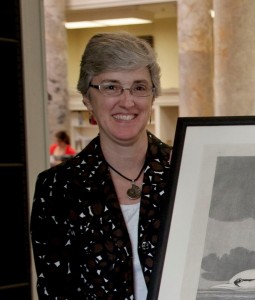 Lauren Hewes is the Andrew W. Mellon Curator of Graphic Arts at the American Antiquarian Society. She is a leading scholar of nineteenth-century American prints, and author of numerous authoritative articles on commercial visual culture, including With a French Accent: French and American Lithography before 1860 (2012). Hewes will lead a session on Civil War ephemera.
Lauren Hewes is the Andrew W. Mellon Curator of Graphic Arts at the American Antiquarian Society. She is a leading scholar of nineteenth-century American prints, and author of numerous authoritative articles on commercial visual culture, including With a French Accent: French and American Lithography before 1860 (2012). Hewes will lead a session on Civil War ephemera.
- Ari Kelman is the McCabe Greer professor of history at Pennsylvania State University. He is the author of Battle Lines: A Graphic History of the Civil War (2015), and the award-winning A Misplaced Massacre: Struggling Over the Memory of Sand Creek (2013) and A River and Its City: The Nature of Landscape in New Orleans (2003). Kelman will lecture on the Civil War and the Indian wars of the West.
 Maurie McInnis is viceprovost for academic affairs and professor of art history at the University of Virginia. She is author of Slaves Waiting for Sale: Abolitionist Art and the American Slave Trade (2011), which won the Charles C. Eldredge Book Prize from the Smithsonian American Art Museum, as well as The Politics of Taste in Antebellum Charleston (2005). McInnis will lecture on slavery and anti-slavery in antebellum visual culture.
Maurie McInnis is viceprovost for academic affairs and professor of art history at the University of Virginia. She is author of Slaves Waiting for Sale: Abolitionist Art and the American Slave Trade (2011), which won the Charles C. Eldredge Book Prize from the Smithsonian American Art Museum, as well as The Politics of Taste in Antebellum Charleston (2005). McInnis will lecture on slavery and anti-slavery in antebellum visual culture.
 Megan Kate Nelson is a freelance writer. She is author of Ruin Nation: Destruction and the American Civil War (2012) and Trembling Earth: A Cultural History of the Okefenokee Swamp (2005), and is a contributor to the New York Times “Disunion” blog. Nelson will lecture on the visualization of the war’s destruction.
Megan Kate Nelson is a freelance writer. She is author of Ruin Nation: Destruction and the American Civil War (2012) and Trembling Earth: A Cultural History of the Okefenokee Swamp (2005), and is a contributor to the New York Times “Disunion” blog. Nelson will lecture on the visualization of the war’s destruction.
 Kirk Savage is professor of the history of U.S. art and architecture at the University of Pittsburgh. He is a leading scholar of public monuments and memory, and author of Monument Wars: Washington, D.C., the National Mall, and the Transformation of the Memorial Landscape (2009), which won the Smithsonian American Art Museum Charles C. Eldredge Prize, and Standing Soldiers, Kneeling Slaves: Race, War, and Monument in Nineteenth-Century America (1999). Savage will lecture on Civil War commemorative sculpture.
Kirk Savage is professor of the history of U.S. art and architecture at the University of Pittsburgh. He is a leading scholar of public monuments and memory, and author of Monument Wars: Washington, D.C., the National Mall, and the Transformation of the Memorial Landscape (2009), which won the Smithsonian American Art Museum Charles C. Eldredge Prize, and Standing Soldiers, Kneeling Slaves: Race, War, and Monument in Nineteenth-Century America (1999). Savage will lecture on Civil War commemorative sculpture.
- Susan Schulten is professor and chair of the history department at the University of Denver. She is the author of the award-winning Mapping the Nation: History and Cartography in Nineteenth-Century America (2012) and The Geographical Imagination in America, 1880-1950 (2002). Schulten will lecture on the mapping of the West during and after the Civil War.
- Scott Manning Stevens is associate professor and director of Native American studies at Syracuse University. He is co-author of Art of the American West: The Haub Family Collection at the Tacoma Art Museum (2014), and Home Front: Daily Life in the Civil War North (2013), and co-editor of Why You Can't Teach United States History without American Indians (2015). Stevens will discuss the visualization of Indian resistance in the Civil War era.
Richard Samuel West is the author of major studies on nineteenth- and twentieth-century periodicals and political cartoons, including Satire on Stone: The Political Cartoons of Joseph Keppler (1988), The San Francisco Wasp: An Illustrated History (2004), Iconoclast in Ink: The Political Cartoons of Jay N. (“Ding”) Darling (2012), and co-author of William Newman: A Victorian Cartoonist in London and New York (2009) and What Fools These Mortals Be! The Story of Puck (2014). West will lecture on political cartoons and Reconstruction.
 Joshua Brown is executive director of the American Social History Project and professor of history at the Graduate Center, CUNY. He is a noted scholar of visual culture in U.S. history, and author of Beyond the Lines: Pictorial Reporting, Everyday Life, and the Crisis of Gilded Age America (2002), and co-author of Forever Free: The Story of Emancipation and Reconstruction (2005). He is currently working on a study of Civil War visual culture for which he received a 2010 Guggenheim Fellowship. Brown will lecture on the illustrated press and participate throughout the institute.
Joshua Brown is executive director of the American Social History Project and professor of history at the Graduate Center, CUNY. He is a noted scholar of visual culture in U.S. history, and author of Beyond the Lines: Pictorial Reporting, Everyday Life, and the Crisis of Gilded Age America (2002), and co-author of Forever Free: The Story of Emancipation and Reconstruction (2005). He is currently working on a study of Civil War visual culture for which he received a 2010 Guggenheim Fellowship. Brown will lecture on the illustrated press and participate throughout the institute. Sarah Burns is the Ruth N. Halls Professor of the History of Art (emerita) at Indiana University. She is a leading scholar of nineteenth-century American art and popular culture, and author of award-winning studies, including Painting the Dark Side: Art and the Gothic Imagination in Nineteenth-Century America (2004) and Inventing the Modern Artist: Art and Culture in Gilded Age America (1996), and is co-editor of American Art to 1900: A Documentary History (2009). Burns will be the lead art historian throughout the institute.
Sarah Burns is the Ruth N. Halls Professor of the History of Art (emerita) at Indiana University. She is a leading scholar of nineteenth-century American art and popular culture, and author of award-winning studies, including Painting the Dark Side: Art and the Gothic Imagination in Nineteenth-Century America (2004) and Inventing the Modern Artist: Art and Culture in Gilded Age America (1996), and is co-editor of American Art to 1900: A Documentary History (2009). Burns will be the lead art historian throughout the institute. Gregory Downs is associate professor of history at the University of California, Davis. Downs specializes in Civil War and Reconstruction history and is author of Declarations of Dependence: The Civil War, Reconstruction, and the Transformation of American Popular Politics (2011), After Appomattox: Military Occupation and the Ends of War (2015), and co-editor of The World the Civil War Made (2015). Recipient of a 2011 NEH Research Fellowship and 2013 ACLS Digital Innovation Fellowship, Downs will be the institute’s primary faculty resource on the Civil War and Reconstruction.
Gregory Downs is associate professor of history at the University of California, Davis. Downs specializes in Civil War and Reconstruction history and is author of Declarations of Dependence: The Civil War, Reconstruction, and the Transformation of American Popular Politics (2011), After Appomattox: Military Occupation and the Ends of War (2015), and co-editor of The World the Civil War Made (2015). Recipient of a 2011 NEH Research Fellowship and 2013 ACLS Digital Innovation Fellowship, Downs will be the institute’s primary faculty resource on the Civil War and Reconstruction. David Jaffee is professor and director of new media at the Bard Graduate Center. He is a leading scholar of U.S. social history, material culture, and a noted writer on and practitioner of teaching with technology. He is author of People of the Wachusett: Greater New England in History and Memory, 1630-1860 (1999) and A New Nation of Goods: The Material Culture of Early America (2010), and has designed and led digital history teaching initiatives sponsored by NEH and the Atlantic Philanthropies’ Visible Knowledge Project. Jaffee will be the institute’s lead historian, focusing on teaching with visual evidence.
David Jaffee is professor and director of new media at the Bard Graduate Center. He is a leading scholar of U.S. social history, material culture, and a noted writer on and practitioner of teaching with technology. He is author of People of the Wachusett: Greater New England in History and Memory, 1630-1860 (1999) and A New Nation of Goods: The Material Culture of Early America (2010), and has designed and led digital history teaching initiatives sponsored by NEH and the Atlantic Philanthropies’ Visible Knowledge Project. Jaffee will be the institute’s lead historian, focusing on teaching with visual evidence. Lynne Zacek Bassett is an award-winning independent scholar specializing in historic costume and textiles. She was curator of textiles and fine arts at Old Sturbridge Village, and subsequently has directed exhibition and publishing projects for the Wadsworth Atheneum Museum of Art, The Mark Twain House and Museum, Historic Deerfield, and the American Textile History Museum. She is editor and primary author of Massachusetts Quilts: Our Common Wealth (2009) and co-author of Homefront & Battlefield: Quilts and Context in the Civil War (2012). Bassett will lecture on the fabrics and clothes of the Civil War.
Lynne Zacek Bassett is an award-winning independent scholar specializing in historic costume and textiles. She was curator of textiles and fine arts at Old Sturbridge Village, and subsequently has directed exhibition and publishing projects for the Wadsworth Atheneum Museum of Art, The Mark Twain House and Museum, Historic Deerfield, and the American Textile History Museum. She is editor and primary author of Massachusetts Quilts: Our Common Wealth (2009) and co-author of Homefront & Battlefield: Quilts and Context in the Civil War (2012). Bassett will lecture on the fabrics and clothes of the Civil War.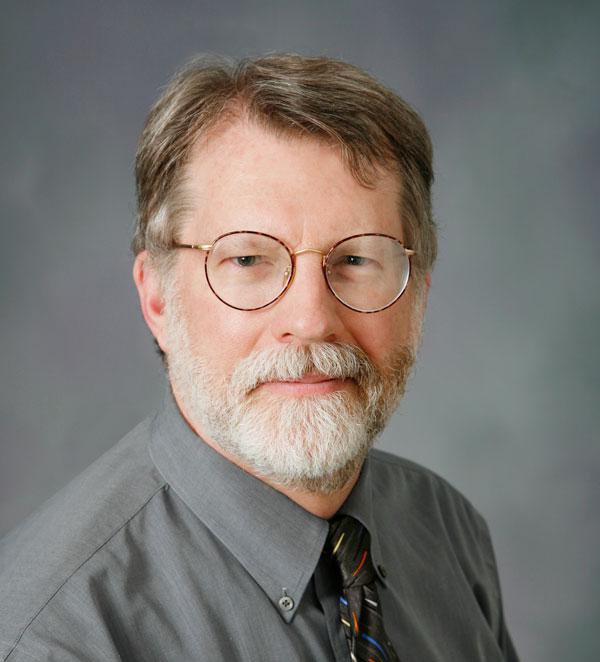
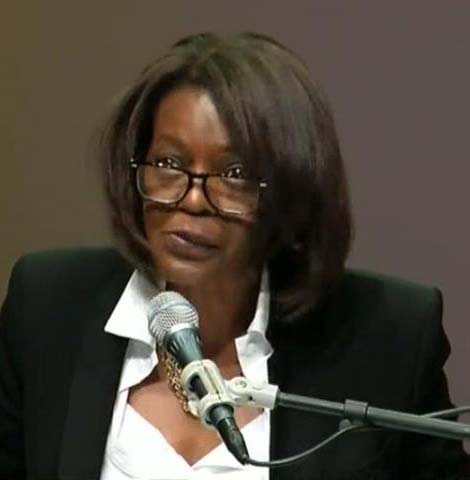
 Lauren Hewes is the Andrew W. Mellon Curator of Graphic Arts at the American Antiquarian Society. She is a leading scholar of nineteenth-century American prints, and author of numerous authoritative articles on commercial visual culture, including With a French Accent: French and American Lithography before 1860 (2012). Hewes will lead a session on Civil War ephemera.
Lauren Hewes is the Andrew W. Mellon Curator of Graphic Arts at the American Antiquarian Society. She is a leading scholar of nineteenth-century American prints, and author of numerous authoritative articles on commercial visual culture, including With a French Accent: French and American Lithography before 1860 (2012). Hewes will lead a session on Civil War ephemera.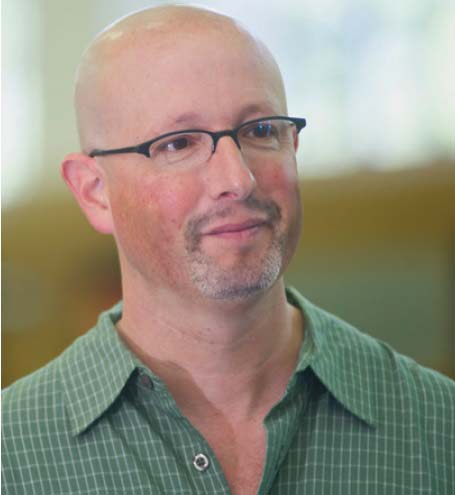
 Maurie McInnis is viceprovost for academic affairs and professor of art history at the University of Virginia. She is author of Slaves Waiting for Sale: Abolitionist Art and the American Slave Trade (2011), which won the Charles C. Eldredge Book Prize from the Smithsonian American Art Museum, as well as The Politics of Taste in Antebellum Charleston (2005). McInnis will lecture on slavery and anti-slavery in antebellum visual culture.
Maurie McInnis is viceprovost for academic affairs and professor of art history at the University of Virginia. She is author of Slaves Waiting for Sale: Abolitionist Art and the American Slave Trade (2011), which won the Charles C. Eldredge Book Prize from the Smithsonian American Art Museum, as well as The Politics of Taste in Antebellum Charleston (2005). McInnis will lecture on slavery and anti-slavery in antebellum visual culture. Megan Kate Nelson is a freelance writer. She is author of Ruin Nation: Destruction and the American Civil War (2012) and Trembling Earth: A Cultural History of the Okefenokee Swamp (2005), and is a contributor to the New York Times “Disunion” blog. Nelson will lecture on the visualization of the war’s destruction.
Megan Kate Nelson is a freelance writer. She is author of Ruin Nation: Destruction and the American Civil War (2012) and Trembling Earth: A Cultural History of the Okefenokee Swamp (2005), and is a contributor to the New York Times “Disunion” blog. Nelson will lecture on the visualization of the war’s destruction. Kirk Savage is professor of the history of U.S. art and architecture at the University of Pittsburgh. He is a leading scholar of public monuments and memory, and author of Monument Wars: Washington, D.C., the National Mall, and the Transformation of the Memorial Landscape (2009), which won the Smithsonian American Art Museum Charles C. Eldredge Prize, and Standing Soldiers, Kneeling Slaves: Race, War, and Monument in Nineteenth-Century America (1999). Savage will lecture on Civil War commemorative sculpture.
Kirk Savage is professor of the history of U.S. art and architecture at the University of Pittsburgh. He is a leading scholar of public monuments and memory, and author of Monument Wars: Washington, D.C., the National Mall, and the Transformation of the Memorial Landscape (2009), which won the Smithsonian American Art Museum Charles C. Eldredge Prize, and Standing Soldiers, Kneeling Slaves: Race, War, and Monument in Nineteenth-Century America (1999). Savage will lecture on Civil War commemorative sculpture.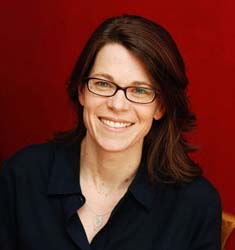

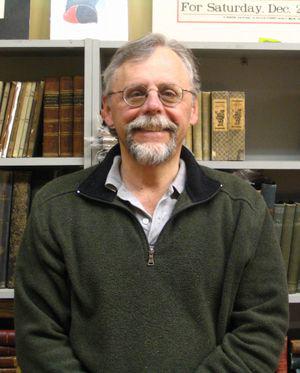
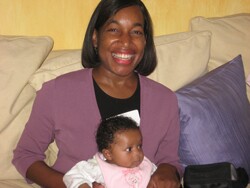 Donna Thompson Ray is the project director for faculty development programs at the American Social History Project/Center for Media and Learning. She has directed many NEH-funded faculty development programs and visual history projects, including Learning to Look: Visual Evidence and the U.S. Past in the New Media Classroom (2002-04) and the Picturing U.S. History: An Interactive Resource for Teaching with Visual Evidence website. She is a Ph.D. candidate in U.S. history at Drew University specializing in nineteenth-century American visual culture.
Donna Thompson Ray is the project director for faculty development programs at the American Social History Project/Center for Media and Learning. She has directed many NEH-funded faculty development programs and visual history projects, including Learning to Look: Visual Evidence and the U.S. Past in the New Media Classroom (2002-04) and the Picturing U.S. History: An Interactive Resource for Teaching with Visual Evidence website. She is a Ph.D. candidate in U.S. history at Drew University specializing in nineteenth-century American visual culture.